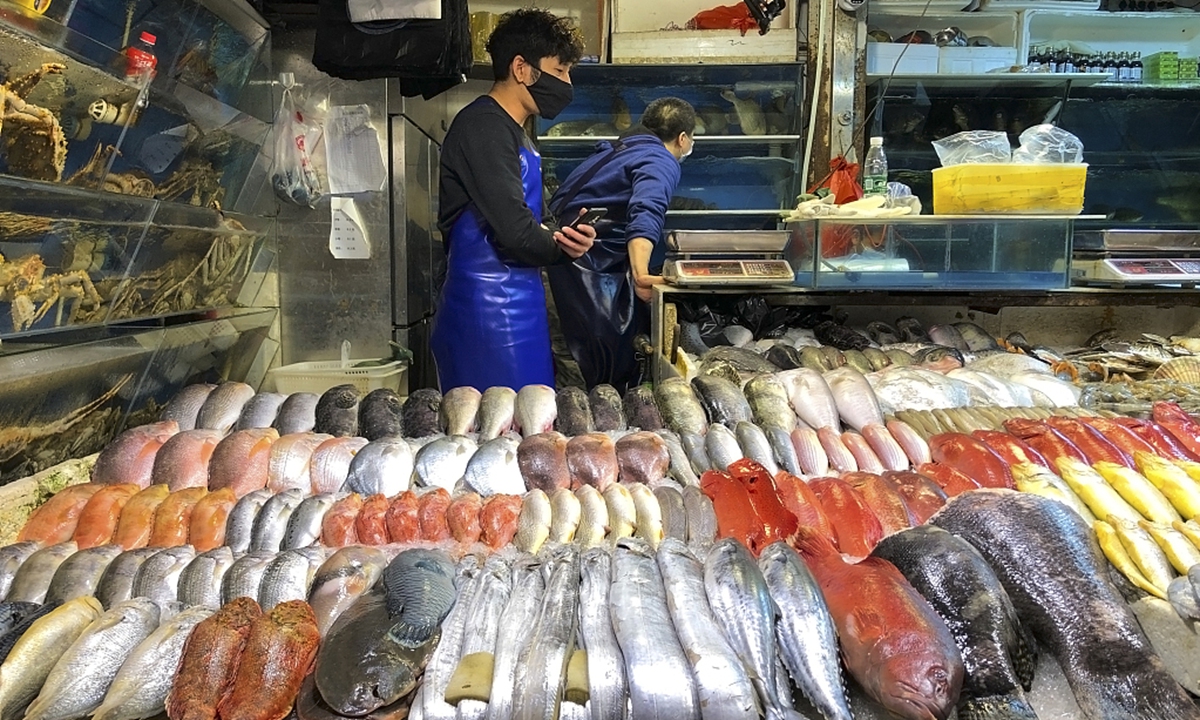Guangzhou beefs up checks on imported seafood amid COVID-19 flare-up

seafood Photo:VCG
As one of the largest seafood markets in China intensifies screening of imported products amid a local flare-up of COVID-19 cases, industry sources said on Monday that there may be some disruptions to imports of medium- and high-end products.
There may also be a short-term impact on imports of live or frozen fish and shrimps, though sufficient supplies for daily consumption can be ensured with local produce, the sources said. Strict inspections could also exert extra pressure on China's already declining seafood import, they added.
Huangsha Aquatic Products Market, the largest in Guangzhou, capital of South China's Guangdong Province, beefed up tracing of frozen and chilled aquatic products over the weekend, according to media reports.
The south China metropolis is facing a flare-up of local COVID-19 cases as dozens of people were found to be hit by mutated virus strains from India.
As a stay-at-home order was issued for residents in several streets, the market tightened up management of cold-chain imports and "strictly implemented tracing, based on the municipal government's electronic invoices, paper-form registers, and documentation to ensure every batch of products can be traced."
The market noted that each batch of imported products has papers issued by quarantine officers and the actual goods must strictly match what the papers show.
The Huangsha market is the largest in southern China, with daily transactions weighing about 500 tons, and about 200 tons are shipped via the market to other Chinese cities.
A manager at the market, which belongs to the port authority of the Port of Guangzhou, told the Global Times that the intensified preventive measures so far have had no immediate impact on the volume or price of imports that it handles.
The seafood typically comes from the US, Canada, the UK, and countries in Africa or Southeast Asia, the manager said, adding that imports are ordered by tenants in the market in small, multiple batches.
However, the manager said enhanced pandemic control measures in the city could have an impact on mid- and high-end seafood imports.
The situation in Huangsha is also causing a ripple effect.
Weng Qiang, a purchasing manager of Sunkfa Holding Group, a leading Beijing-based seafood company, told the Global Times on Monday that the tightened measures will cause his company to re-route some of its cargoes to new ports of entry for customs clearance.
"In the near term, the impact on frozen fish will be limited due to the long delivery cycle for such products, but live and frozen products will see shipments decline," Weng said. His company imports Basa fish from Southeast Asia.
The manager from Huangsha noted that demand for imported aquatic products has declined significantly due to the global pandemic as consumers avoid such products.
In 2020, China imported $12.7 billion worth of seafood, down 20 percent year-on-year, customs data showed. In the second half, the pandemic caused imports to contract by a huge 31 percent.
In the meantime, demand for locally produced freshwater fish and shrimps that sell at lower prices has risen, the manager said.




